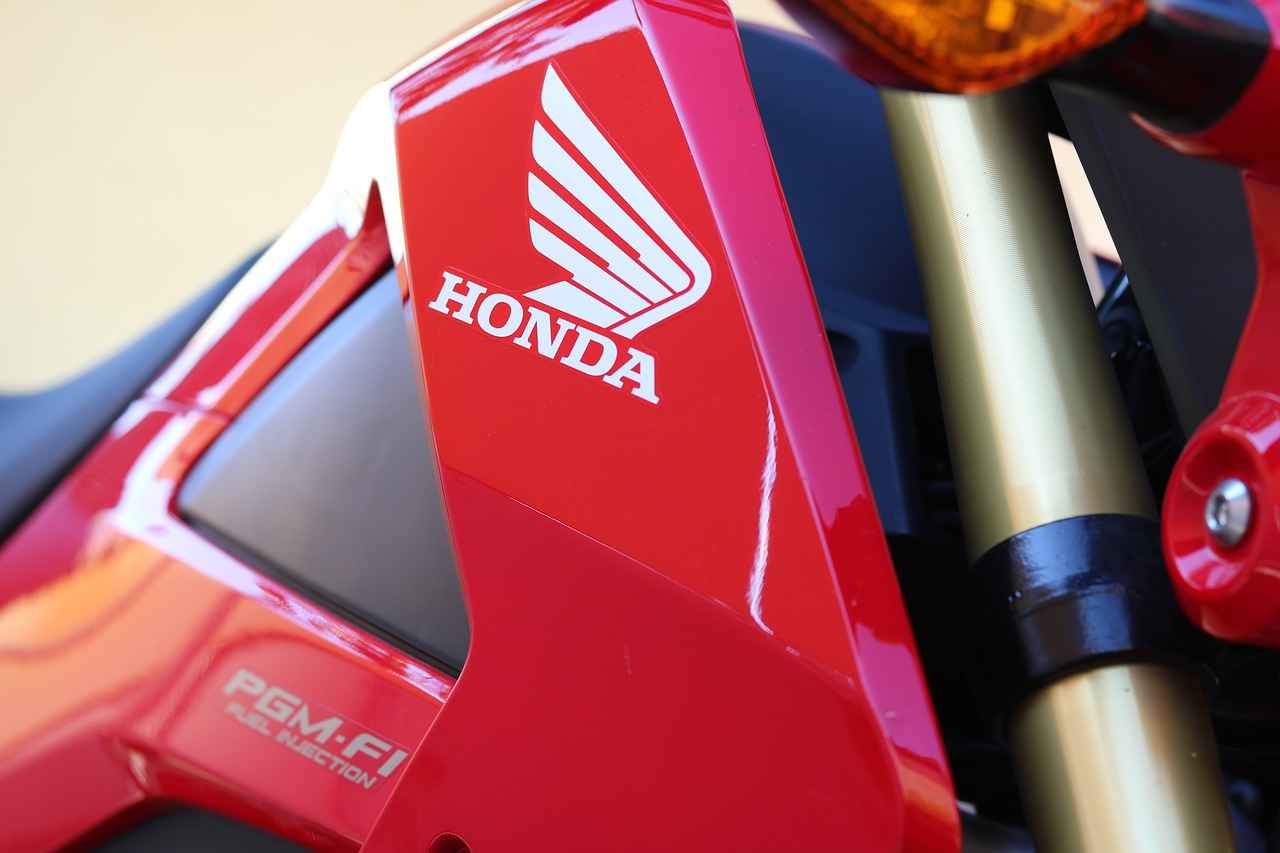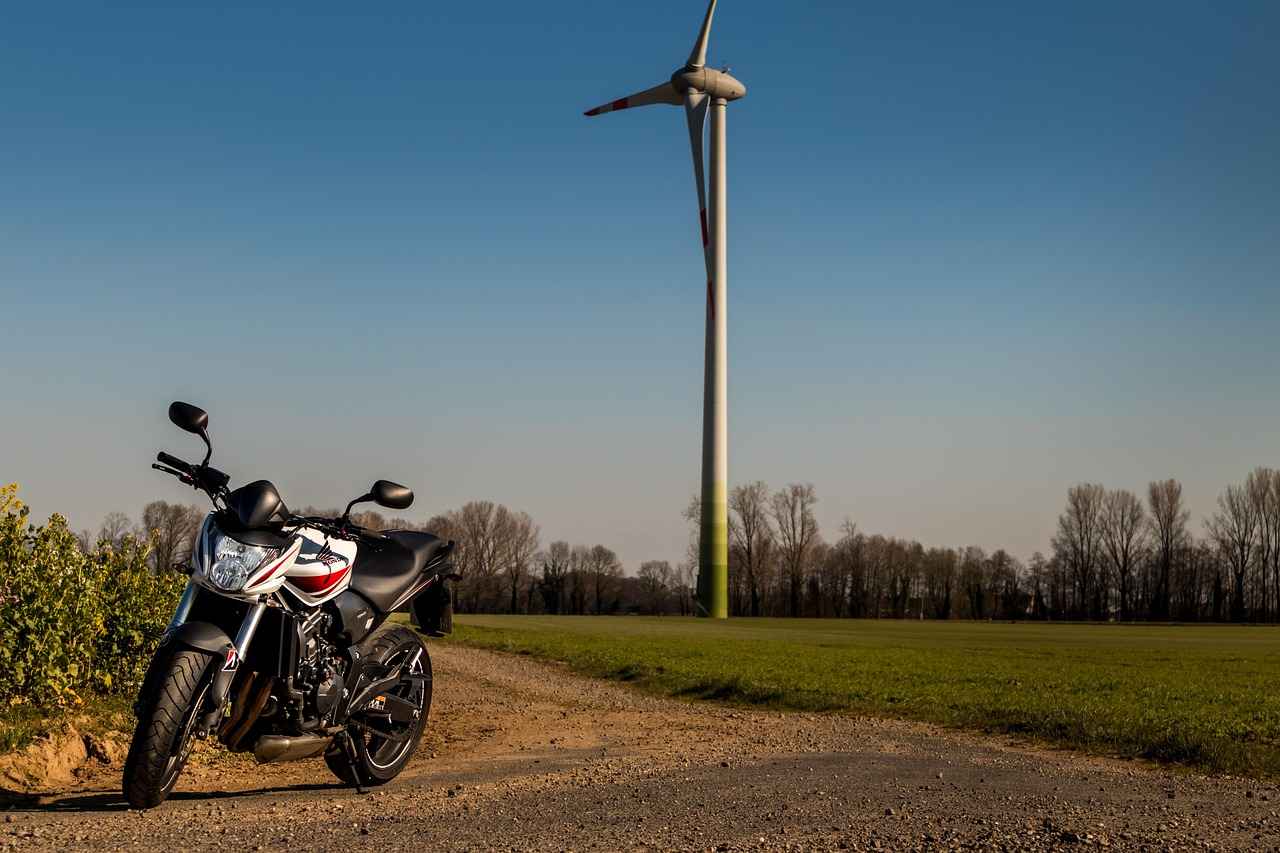The Honda Accord is a well-known name in the automotive industry, celebrated for its reliability, performance, and advanced technology. This article delves into the various manufacturing locations of the Honda Accord, highlighting its production processes, quality standards, and contributions to local economies. With insights beneficial for car enthusiasts and potential buyers, we aim to provide a comprehensive understanding of where and how this iconic vehicle is produced.
The Honda Accord is primarily manufactured in two key locations: the United States and Japan. In the U.S., Honda operates several plants, including facilities in Ohio and Alabama, which focus on different models and trims of the Accord. Meanwhile, Japan remains home to Honda’s original manufacturing plant, where the brand’s commitment to quality began. Understanding these locations is crucial for grasping Honda’s global production strategy.
Quality control is a cornerstone of Honda’s manufacturing philosophy. The company employs a series of rigorous testing and quality assurance measures to uphold high standards across all production facilities. This commitment ensures that every Honda Accord meets the stringent expectations of consumers worldwide.
Honda implements a multitude of testing procedures to guarantee the quality of the Accord. These include:
- Durability Tests: Assessing the vehicle’s performance under various conditions.
- Safety Evaluations: Ensuring the Accord meets all safety regulations and standards.
- Performance Assessments: Evaluating the vehicle’s handling, acceleration, and overall driving experience.
The sourcing of materials is vital for maintaining quality. Honda prioritizes the use of durable, sustainable materials that comply with safety standards and environmental regulations. This commitment not only enhances the longevity of the Accord but also aligns with global sustainability goals.
Advanced technology plays a significant role in Honda’s manufacturing process. The integration of robotics and artificial intelligence enhances precision and efficiency. This technological advancement allows Honda to maintain consistent quality while optimizing production processes, which is essential in today’s competitive automotive market.
Honda’s manufacturing plants are vital to local economies. They create numerous jobs, stimulate economic growth, and foster community development through various initiatives. By investing in local partnerships and programs, Honda not only supports its workforce but also contributes to the overall well-being of the communities in which it operates.
The Honda Accord is renowned for its blend of performance, comfort, and technology. Key features include:
- Fuel Efficiency: The Accord is designed to be economical, making it an attractive option for budget-conscious consumers.
- Advanced Safety Features: Equipped with systems like adaptive cruise control and lane-keeping assist, the Accord prioritizes driver and passenger safety.
- Modern Technology: With options for enhanced connectivity and infotainment systems, the Accord caters to the tech-savvy driver.
As the automotive industry evolves, Honda is adapting to emerging technologies and consumer demands. Future manufacturing strategies may include a focus on electric vehicle production and sustainable practices. This shift reflects Honda’s commitment to innovation and environmental responsibility.
Honda is dedicated to reducing its environmental footprint by investing in eco-friendly manufacturing processes. The company promotes the development of electric and hybrid vehicles in its lineup, aligning with global efforts to combat climate change.
Future Honda Accord models are anticipated to feature groundbreaking technologies, including enhanced connectivity, autonomous driving capabilities, and improved fuel efficiency. These innovations are designed to meet the evolving preferences of consumers and keep Honda at the forefront of the automotive industry.
Understanding where and how the Honda Accord is built offers valuable insights into the brand’s commitment to quality, innovation, and sustainability. This knowledge empowers consumers to make informed purchasing decisions, ensuring they choose a vehicle that aligns with their values and needs.

What Are the Primary Manufacturing Locations for Honda Accord?
The Honda Accord is a well-known name in the automotive industry, recognized for its reliability, comfort, and performance. But have you ever wondered where this iconic vehicle is manufactured? Understanding the primary manufacturing locations of the Honda Accord is crucial for both enthusiasts and potential buyers, as it provides insights into the production processes and quality standards that define this remarkable sedan.
The Honda Accord is primarily built in two countries: the United States and Japan. Each of these locations plays a vital role in Honda’s global production strategy, with specific plants dedicated to various models and trims of the Accord.
| Country | Primary Manufacturing Plants | Models Produced |
|---|---|---|
| United States | Marysville, Ohio; Lincoln, Alabama | Honda Accord Sedan, Honda Accord Coupe |
| Japan | Sayama, Saitama | Honda Accord Hybrid |
The Marysville plant in Ohio has been a cornerstone of Honda’s manufacturing presence in the U.S. since 1982. This facility is known for its advanced robotics and efficient production lines, contributing significantly to Honda’s reputation for quality. Meanwhile, the Lincoln plant in Alabama focuses on producing the Accord’s coupe variant, showcasing Honda’s commitment to diversifying its offerings.
In Japan, the Sayama plant is responsible for manufacturing the hybrid version of the Accord. This facility emphasizes Honda’s dedication to sustainability and innovation, aligning with global trends toward environmentally friendly vehicles. The combination of these manufacturing locations illustrates Honda’s strategic approach to meeting consumer demands while maintaining high standards of quality and efficiency.
Quality control is a critical aspect of Honda’s manufacturing process. The company employs a series of rigorous testing and quality assurance measures across all production facilities to ensure that every Accord meets the brand’s high standards. These measures include:
- Durability Tests: Each vehicle undergoes extensive testing to ensure it can withstand various driving conditions.
- Safety Evaluations: Honda prioritizes safety, conducting thorough evaluations to meet regulatory standards.
- Performance Assessments: The performance of each model is tested to ensure it delivers the expected driving experience.
Advanced technology plays a pivotal role in enhancing the precision of Honda’s manufacturing processes. The integration of robotics and artificial intelligence helps maintain consistent quality while optimizing production efficiency. This technological advancement not only improves manufacturing processes but also contributes to the overall reliability of the Honda Accord.
Honda’s manufacturing plants provide significant benefits to local economies. By creating jobs and stimulating economic growth, these facilities foster community development through various initiatives. Honda’s commitment to local partnerships and investments in workforce training programs further enhances its positive impact on the communities in which it operates.
The Honda Accord is renowned for its blend of performance, comfort, and technology. Key features include:
- Advanced Safety Features: Equipped with adaptive cruise control, lane-keeping assist, and collision mitigation braking systems.
- Fuel Efficiency: The Accord is designed to maximize fuel economy, making it a cost-effective choice for drivers.
- Interior Comfort: Spacious interiors and high-quality materials provide a comfortable driving experience.
In summary, understanding where and how the Honda Accord is built provides valuable insights into the brand’s commitment to quality, innovation, and sustainability. This knowledge not only informs potential buyers but also enhances appreciation for the engineering and craftsmanship behind this iconic vehicle.

How Does Honda Ensure Quality Control in Manufacturing?
Quality control is a fundamental aspect of Honda’s manufacturing process, ensuring that every vehicle meets the company’s high standards for performance, safety, and reliability. Honda employs a multifaceted approach to quality assurance that encompasses various stages of production, from initial design to final inspection. This rigorous framework not only enhances the durability and functionality of the Honda Accord but also reinforces the brand’s reputation for excellence in the automotive industry.
Honda’s quality control process is characterized by several key elements:
- Standardized Procedures: Each manufacturing facility follows strict guidelines that ensure consistency in production. These procedures are regularly updated to reflect the latest advancements in technology and manufacturing practices.
- Employee Training: Continuous training programs are implemented for employees, equipping them with the necessary skills to identify and rectify potential quality issues. This investment in human capital is crucial for maintaining high standards across all production lines.
- Real-Time Monitoring: Advanced technologies, including sensors and data analytics, are utilized to monitor production processes in real-time. This allows for immediate adjustments to be made, minimizing defects and ensuring that each vehicle adheres to Honda’s quality benchmarks.
To maintain its esteemed reputation, Honda conducts a series of comprehensive testing procedures:
- Durability Tests: Vehicles undergo rigorous stress tests to evaluate their performance under various conditions. This includes simulating extreme weather and road situations to ensure reliability.
- Safety Evaluations: Safety is paramount, and Honda’s vehicles are subjected to extensive crash tests and safety assessments. These evaluations help to ensure that all models, including the Accord, meet or exceed industry safety standards.
- Performance Assessments: Each model is tested for performance metrics such as acceleration, braking, and fuel efficiency. These assessments ensure that the Accord delivers a driving experience that aligns with consumer expectations.
The quality of materials used in manufacturing is critical for the overall quality of the final product. Honda prioritizes:
- Sustainable Sourcing: The company is committed to using environmentally friendly materials that comply with safety regulations. This approach not only enhances the quality of the vehicles but also supports Honda’s sustainability goals.
- Supplier Relationships: Honda maintains strong partnerships with suppliers to ensure that materials meet the required quality standards. Regular audits and assessments are conducted to uphold these standards.
Technology is integral to Honda’s quality assurance efforts. The use of robotics and artificial intelligence in manufacturing processes enhances precision and efficiency. Key technological advancements include:
- Automated Inspections: Robotics are employed for automated inspections, allowing for faster and more accurate evaluations of various components.
- Data Analytics: Honda utilizes big data analytics to identify trends and potential issues in the production process, enabling proactive measures to maintain quality.
Honda’s commitment to quality and excellence in manufacturing extends beyond the production line, positively impacting local economies. The establishment of manufacturing plants creates numerous job opportunities, stimulates economic growth, and fosters community development through various initiatives. Honda’s presence in these regions often leads to increased investment in infrastructure and services, benefiting the entire community.
In summary, Honda’s comprehensive quality control measures ensure that every Accord produced meets the highest standards of safety, performance, and reliability. Through rigorous testing, sustainable sourcing, and advanced technology, Honda not only upholds its reputation but also contributes positively to local economies.
What Testing Procedures Are Implemented?
The Honda Accord is a symbol of reliability and quality in the automotive industry. To maintain its esteemed reputation, Honda employs a comprehensive range of testing procedures that ensure every vehicle meets stringent standards. These procedures are critical in delivering a product that not only meets customer expectations but also adheres to the highest safety and performance benchmarks.
Honda implements a series of rigorous testing protocols, each designed to assess different aspects of the vehicle’s performance and safety. These include:
- Durability Testing: This involves subjecting the Accord to extreme conditions to evaluate its resilience. Vehicles are driven over rough terrains, exposed to harsh weather, and subjected to various stress tests to ensure they can withstand everyday use.
- Safety Evaluations: Honda places a strong emphasis on safety. The Accord undergoes extensive crash tests, including frontal, side, and rollover assessments, to ensure it meets or exceeds safety regulations. Advanced safety features are also tested for effectiveness in real-world scenarios.
- Performance Assessments: Performance testing is crucial for evaluating engine efficiency, handling, and braking capabilities. Honda conducts both on-road and track testing to fine-tune the driving experience, ensuring that the Accord delivers a smooth and responsive ride.
Each of these testing procedures plays a vital role in the overall quality assurance process. By implementing such thorough testing, Honda can:
- Enhance Reliability: The rigorous durability tests help in identifying potential weaknesses in the vehicle before it reaches consumers, significantly enhancing the reliability of the Accord.
- Ensure Safety: With safety evaluations, Honda not only complies with legal requirements but also prioritizes the well-being of its customers, reinforcing trust in the brand.
- Improve Performance: Performance assessments allow Honda to refine the driving dynamics of the Accord, ensuring that it meets the expectations of driving enthusiasts while remaining user-friendly for everyday drivers.
Honda leverages advanced technology to streamline its testing procedures. The integration of robotics and artificial intelligence allows for precision in testing that was not possible in the past. For instance, robotic systems can simulate various driving conditions with exceptional accuracy, while AI algorithms analyze performance data to identify areas for improvement.
As the automotive landscape evolves with the rise of electric vehicles and autonomous driving technology, Honda is adapting its testing protocols accordingly. Future testing may involve:
- Electric Vehicle Testing: With the shift towards electrification, Honda will implement new testing standards for electric drivetrains, battery performance, and charging systems.
- Autonomous Driving Assessments: As Honda explores self-driving technologies, rigorous testing will be essential to ensure that these systems are safe and reliable.
In conclusion, Honda’s commitment to quality is evident through its meticulous testing procedures for the Accord. By focusing on durability, safety, and performance, the company not only meets but often exceeds customer expectations. This dedication to excellence is what makes the Honda Accord a trusted choice for many drivers around the world.
How Are Materials Sourced for Production?
The sourcing of materials is a fundamental aspect of Honda’s commitment to quality and sustainability. In the competitive automotive industry, the choice of materials directly influences the performance, durability, and environmental impact of vehicles. Honda meticulously selects materials that not only meet stringent safety standards but also align with their vision for a sustainable future.
Honda emphasizes the use of durable and sustainable materials in the production of the Accord. This includes high-strength steel, lightweight aluminum, and recycled plastics. By using these materials, Honda enhances the vehicle’s overall performance while minimizing its carbon footprint. The company is also committed to using materials that are sourced responsibly, ensuring that they do not contribute to environmental degradation.
Honda’s manufacturing process prioritizes safety, and the materials used are no exception. The company conducts rigorous testing to ensure that all materials comply with international safety regulations. This includes assessments for crashworthiness, durability, and long-term performance under various conditions. By adhering to these standards, Honda not only protects its consumers but also reinforces its reputation as a reliable automotive manufacturer.
Sustainability is at the heart of Honda’s material sourcing strategy. The company actively seeks out suppliers who share its commitment to environmental responsibility. This includes using recycled materials and minimizing waste during the production process. For instance, Honda has implemented initiatives to recycle manufacturing waste and reduce energy consumption in its factories. This approach not only benefits the environment but also aligns with consumer expectations for more sustainable products.
Honda’s collaboration with suppliers is crucial for ensuring the quality and sustainability of materials. The company engages in long-term partnerships with suppliers who meet its high standards for ethical sourcing and environmental stewardship. By working closely with these suppliers, Honda can innovate and improve material quality, leading to better performance and lower environmental impact in their vehicles.
As technology advances, Honda is exploring new materials that can further enhance the quality and sustainability of its vehicles. Innovations such as biomaterials and advanced composites are being researched to replace traditional materials. These developments not only promise to improve vehicle performance but also significantly reduce the ecological impact of production.
The careful selection and sourcing of materials have a profound impact on Honda’s overall manufacturing process. High-quality materials contribute to the longevity and reliability of the Honda Accord, resulting in fewer recalls and higher customer satisfaction. Additionally, sustainable sourcing practices help Honda maintain a positive brand image, appealing to environmentally conscious consumers.
For consumers, understanding Honda’s commitment to quality material sourcing is essential when making purchasing decisions. A vehicle built with durable and sustainable materials not only ensures better performance but also reflects a brand’s commitment to environmental responsibility. This transparency in sourcing practices can enhance consumer trust and loyalty.
In conclusion, Honda’s approach to material sourcing is a critical component of its manufacturing philosophy. By focusing on durable, sustainable materials that meet safety standards, Honda not only enhances the quality of the Accord but also aligns with the growing demand for environmentally friendly practices in the automotive industry.
What Role Does Technology Play in Quality Assurance?
The integration of advanced technologies in manufacturing has revolutionized the automotive industry, particularly in the production of vehicles like the Honda Accord. This article delves into the critical role that technology plays in ensuring quality assurance within Honda’s manufacturing processes.
In today’s competitive automotive market, maintaining high standards of quality is essential. Honda employs a combination of robotics, artificial intelligence (AI), and data analytics to enhance precision and consistency in their manufacturing processes. This technological integration not only improves the quality of the vehicles produced but also optimizes production efficiency.
Robotics play a pivotal role in the assembly lines of Honda manufacturing plants. These machines are designed to perform repetitive tasks with exceptional accuracy, reducing the margin for error. For instance, robotic arms are used for welding, painting, and assembly, ensuring that each component is installed correctly. This level of precision helps Honda maintain its reputation for producing reliable vehicles.
AI technologies are increasingly being utilized to enhance quality control processes. By analyzing data collected from various stages of production, AI systems can identify potential defects before they escalate into larger issues. This proactive approach allows Honda to address quality concerns promptly, ensuring that only the best vehicles reach consumers.
Honda implements rigorous testing procedures to ensure that every Accord meets high standards. Technology has significantly improved these testing processes. For example, virtual simulations allow engineers to test vehicle performance under various conditions without the need for physical prototypes. This not only saves time but also reduces costs associated with traditional testing methods.
Data analytics is another critical component of Honda’s technological strategy. By collecting and analyzing data from production lines, Honda can identify trends and inefficiencies. This information enables the company to make informed decisions about process improvements, ultimately leading to enhanced production efficiency and quality assurance.
While technology is vital, the human element remains crucial in quality assurance. Honda invests in training programs for its employees to ensure they are well-versed in operating advanced machinery and understanding AI systems. This combination of skilled labor and cutting-edge technology creates a robust manufacturing environment where quality is prioritized.
In addition to quality assurance, technology plays a significant role in Honda’s sustainability initiatives. Advanced manufacturing techniques reduce waste and energy consumption, aligning with Honda’s commitment to environmental responsibility. By utilizing technology to streamline processes, Honda not only enhances quality but also minimizes its ecological footprint.
As the automotive industry continues to evolve, Honda is poised to adopt even more innovative technologies. Future trends may include the use of machine learning to further enhance quality control and predictive maintenance systems that can foresee potential issues before they arise. These advancements will ensure that Honda remains at the forefront of quality assurance in manufacturing.
In conclusion, technology is integral to Honda’s approach to quality assurance in manufacturing. Through the use of robotics, AI, data analytics, and comprehensive employee training, Honda not only maintains high standards of quality but also drives efficiency and sustainability in its production processes. Understanding these technological advancements provides valuable insights into how Honda continues to deliver reliable and high-quality vehicles like the Accord.
How Do Local Economies Benefit from Honda Manufacturing?
The impact of Honda’s manufacturing plants on local economies is profound and multifaceted. These facilities not only generate employment opportunities but also stimulate economic growth and enhance community development through various initiatives and partnerships. Understanding these benefits provides valuable insights into the broader implications of automotive manufacturing.
One of the most significant contributions of Honda’s manufacturing plants is job creation. These facilities employ thousands of individuals, providing stable jobs that support families and contribute to local economies. In addition to direct employment, Honda’s presence also stimulates the creation of indirect jobs in related sectors such as logistics, parts suppliers, and service industries. This ripple effect is vital for maintaining a robust economic environment.
Honda invests heavily in the communities surrounding its manufacturing plants. Through partnerships with local governments and organizations, Honda engages in initiatives that promote education, healthcare, and infrastructure development. By supporting local schools and vocational training programs, Honda ensures that the workforce is well-equipped with the necessary skills to thrive in the automotive industry and beyond.
The presence of Honda manufacturing plants often leads to an increase in local business activity. Small businesses, ranging from restaurants to retail shops, benefit from the influx of employees and visitors associated with the plants. This economic boost can be seen in increased sales and the potential for new business ventures, contributing to the overall vitality of the local economy.
Honda is also committed to sustainability and environmental stewardship. The company implements eco-friendly practices in its manufacturing processes, which not only reduce the environmental impact but also promote green jobs in the community. By prioritizing sustainability, Honda helps create a healthier environment, which is beneficial for both residents and the economy.
Beyond economic contributions, Honda actively engages in community service and philanthropy. The company organizes various programs that support local charities, environmental conservation efforts, and disaster relief initiatives. This engagement fosters a sense of community and strengthens the bond between Honda and the residents, enhancing the overall quality of life.
Honda’s commitment to its manufacturing plants leads to long-term economic stability in the areas where they operate. By continuously investing in technology, workforce development, and community initiatives, Honda ensures that its plants remain competitive and sustainable. This foresight not only benefits the company but also secures economic resilience for local communities.
In summary, Honda’s manufacturing plants play a crucial role in bolstering local economies through job creation, community investment, and sustainable practices. These contributions extend beyond mere economic metrics, fostering a sense of community and shared purpose that enriches the lives of residents and enhances the overall prosperity of the region.

What Are the Key Features of the Honda Accord?
The Honda Accord has established itself as a leader in the midsize sedan market, appealing to a wide range of consumers with its exceptional features and capabilities. This article delves into the key features of the Honda Accord, highlighting what sets it apart from its competitors and why it remains a popular choice among buyers.
One of the standout features of the Honda Accord is its impressive performance and fuel efficiency. The Accord offers a variety of engine options, including a turbocharged 1.5-liter engine and a more robust 2.0-liter turbo engine. These engines provide a perfect balance of power and efficiency, allowing drivers to enjoy a spirited drive without sacrificing fuel economy. Additionally, the hybrid variant of the Accord enhances efficiency even further, making it an environmentally friendly option.
The Honda Accord is equipped with cutting-edge technology that enhances the driving experience. The Honda Sensing® suite includes advanced safety features such as adaptive cruise control, lane-keeping assist, and collision mitigation braking systems. This technology not only improves safety but also provides peace of mind for drivers and passengers alike.
- Apple CarPlay® and Android Auto™ integration allows seamless connectivity for smartphones.
- The available 10-inch display provides easy access to navigation, music, and vehicle settings.
- Wireless charging capabilities keep devices powered without the clutter of cords.
Comfort is a hallmark of the Honda Accord, with a spacious interior that can comfortably seat five adults. The materials used throughout the cabin are of high quality, providing a premium feel. Features such as dual-zone automatic climate control and available leather-trimmed seats elevate the driving experience. The Accord also boasts a generous trunk space, making it practical for everyday use.
Safety is a top priority for Honda, and the Accord reflects this commitment. The vehicle has consistently earned high safety ratings from organizations such as the National Highway Traffic Safety Administration (NHTSA) and the Insurance Institute for Highway Safety (IIHS). Key safety features include:
- Multi-angle rearview camera for enhanced visibility while reversing.
- Blind spot information system that alerts drivers to vehicles in adjacent lanes.
- Automatic high beams that adjust based on lighting conditions.
The Honda Accord is renowned for its reliability and resale value. Buyers can feel confident that their investment will hold its value over time, thanks to Honda’s reputation for building durable and dependable vehicles. The Accord’s low maintenance costs and high-quality engineering contribute to its long-term appeal.
In summary, the Honda Accord stands out in its class due to its impressive performance, advanced technology, spacious interior, and strong safety ratings. Understanding these key features not only helps potential buyers appreciate the Accord’s value but also reinforces why it remains a top choice for those seeking a reliable and enjoyable driving experience.
How Does the Accord Compare to Competitors?
The Honda Accord has long been a staple in the midsize sedan market, renowned for its exceptional blend of performance, comfort, and technology. When evaluating the Accord against its competitors, several key factors emerge that highlight its superiority. These factors include reliability, fuel efficiency, and resale value, all of which contribute to its enduring popularity among consumers.
Reliability is a crucial consideration for many car buyers, especially in the midsize sedan category. The Honda Accord consistently ranks high in reliability surveys and reports. According to sources like J.D. Power and Consumer Reports, the Accord’s track record for durability and minimal maintenance issues positions it favorably against competitors such as the Toyota Camry and Nissan Altima. This reliability translates into peace of mind for drivers, knowing they can depend on their vehicle for daily commutes and long trips alike.
In an era where fuel prices fluctuate and environmental concerns rise, fuel efficiency has become a significant factor in purchasing decisions. The Honda Accord offers impressive fuel economy ratings, often surpassing those of its rivals. For instance, the Accord’s hybrid variant delivers remarkable miles per gallon, making it an attractive option for eco-conscious consumers. This efficiency not only saves money at the pump but also reduces the carbon footprint, aligning with the values of many modern drivers.
Another critical aspect to consider when comparing the Honda Accord to its competitors is resale value. The Accord has proven to maintain its value exceptionally well over time. According to Kelley Blue Book, the Accord consistently ranks among the top vehicles in terms of resale value in the midsize sedan segment. This is particularly appealing for buyers who view their vehicle as a long-term investment. A higher resale value means that when it comes time to sell or trade in, owners can expect a better return on their investment.
In addition to reliability, fuel efficiency, and resale value, the Honda Accord boasts a range of features and technology that enhance its appeal. The interior is designed with comfort and convenience in mind, offering spacious seating and advanced infotainment options. Competitors like the Ford Fusion and Hyundai Sonata offer similar features, but the Accord often edges them out with its user-friendly interface and high-quality materials.
Safety is a top priority for many car buyers, and the Honda Accord does not disappoint in this area. Equipped with a suite of advanced safety features, including adaptive cruise control, lane-keeping assist, and collision mitigation braking systems, the Accord consistently earns high safety ratings from organizations like the National Highway Traffic Safety Administration (NHTSA) and the Insurance Institute for Highway Safety (IIHS). This commitment to safety further solidifies its position as a leading choice in the midsize sedan market.
Consumer reviews and expert opinions often highlight the Honda Accord’s strengths in reliability, fuel efficiency, and overall value. Many owners report satisfaction with their purchase, citing the vehicle’s performance and low maintenance costs as significant advantages. This positive feedback contributes to a strong reputation that attracts new buyers, further reinforcing the Accord’s status in the automotive landscape.
In conclusion, when comparing the Honda Accord to its competitors, it is clear that its reliability, fuel efficiency, and resale value set it apart as a top choice among midsize sedans. These factors, combined with its advanced safety features and consumer satisfaction, make the Accord a compelling option for anyone in the market for a reliable and efficient vehicle.
What Safety Features Are Included in the Honda Accord?
The Honda Accord has long been recognized as a leader in the midsize sedan market, and a significant part of its appeal lies in its commitment to safety. With an increasing focus on advanced safety technologies, Honda ensures that the Accord not only meets but often exceeds industry standards. This article delves into the comprehensive safety features that make the Honda Accord a top choice for safety-conscious drivers.
The Honda Accord comes equipped with a suite of advanced safety features designed to enhance driver awareness and protect passengers. Among these features are:
- Adaptive Cruise Control: This feature automatically adjusts the vehicle’s speed to maintain a safe distance from the car ahead, making highway driving more comfortable and safer.
- Lane-Keeping Assist: The lane-keeping assist system helps prevent unintended lane departures by providing subtle steering adjustments, ensuring the driver stays centered in their lane.
- Collision Mitigation Braking System: This innovative system uses sensors to detect potential collisions and applies the brakes if the driver does not respond in time, significantly reducing the likelihood of an accident.
- Road Departure Mitigation System: This feature helps prevent accidents by detecting when the vehicle is about to leave the roadway and can apply brakes or adjust steering to prevent a crash.
- Traffic Sign Recognition: This system scans and recognizes traffic signs, providing drivers with important information about speed limits and other regulations.
Honda takes safety seriously, employing rigorous testing protocols to ensure that every Accord meets high safety standards. The company conducts:
- Crash Tests: Extensive crash testing is performed to evaluate the Accord’s performance in various collision scenarios, ensuring that the vehicle can protect its occupants effectively.
- Real-World Simulations: By simulating real-world driving conditions, Honda can assess how the Accord’s safety features perform in everyday scenarios.
- Continuous Improvement: Feedback from crash data and customer experiences is used to refine and enhance safety features in future models.
The Honda Accord has consistently earned high safety ratings from various organizations, including:
- National Highway Traffic Safety Administration (NHTSA): The Accord has received a 5-star overall safety rating, demonstrating its effectiveness in crash protection.
- Insurance Institute for Highway Safety (IIHS): The Accord has been recognized as a Top Safety Pick+, highlighting its superior performance in crashworthiness and crash avoidance.
Honda’s commitment to safety goes beyond compliance; it reflects the company’s core values. By prioritizing safety, Honda not only protects its customers but also contributes to the overall safety of the roads. This dedication is evident in the extensive research and development that goes into creating innovative safety technologies.
In summary, the Honda Accord stands out in the automotive market due to its comprehensive suite of advanced safety features, rigorous testing protocols, and impressive safety ratings. With technologies designed to prevent accidents and protect occupants, the Accord embodies Honda’s commitment to safety and reliability, making it a smart choice for those prioritizing peace of mind on the road.

What Is the Future of Honda Accord Manufacturing?
The automotive landscape is undergoing a significant transformation, and Honda is at the forefront of this evolution. As consumer preferences shift towards sustainability and advanced technologies, Honda is reimagining its manufacturing strategies for the Accord and other models. This article delves into the future of Honda Accord manufacturing, highlighting the company’s commitment to innovation, environmental responsibility, and adapting to market demands.
With the rising popularity of electric vehicles (EVs), Honda recognizes the need to pivot towards electric vehicle production. The company has announced plans to invest heavily in EV technology, aiming to introduce a range of electric models, including an all-electric version of the Accord. This strategic shift not only caters to environmentally conscious consumers but also aligns with global trends towards reducing carbon emissions.
Honda is committed to sustainability, and this is reflected in its manufacturing processes. The company is exploring various sustainable practices, such as:
- Utilizing renewable energy sources in production facilities.
- Implementing recycling programs to minimize waste.
- Investing in sustainable materials for vehicle production.
By integrating these practices, Honda aims to reduce its environmental footprint while maintaining high-quality standards in its manufacturing processes.
Advanced technology plays a crucial role in Honda’s future manufacturing strategies. The company is leveraging automation and artificial intelligence to enhance production efficiency and quality control. These technologies enable Honda to:
- Streamline assembly processes.
- Improve precision in manufacturing.
- Reduce production costs while maintaining high standards.
As Honda continues to innovate, the integration of technology will be vital in meeting the demands of modern consumers.
Looking ahead, the Honda Accord is set to incorporate a range of innovative features that enhance the driving experience. Some anticipated innovations include:
- Enhanced connectivity options, including advanced infotainment systems.
- Autonomous driving capabilities that align with future mobility trends.
- Improved fuel efficiency through hybrid and electric powertrains.
These innovations not only improve the vehicle’s performance but also cater to the evolving preferences of consumers seeking modern, tech-savvy vehicles.
As consumer expectations evolve, Honda is actively listening and adapting to these changes. The company conducts extensive market research to understand the needs and preferences of its customers. This allows Honda to tailor its manufacturing processes and product offerings accordingly, ensuring that the Accord remains a competitive choice in the midsize sedan market. By focusing on customer satisfaction, Honda aims to maintain its reputation for reliability and value.
Understanding Honda’s future manufacturing strategies is crucial for consumers and automotive enthusiasts alike. It provides insights into the brand’s commitment to sustainability, innovation, and consumer satisfaction. As Honda continues to adapt to the changing automotive landscape, staying informed about these developments can help potential buyers make educated decisions when considering the Honda Accord or any other models in Honda’s expanding lineup.
How Is Honda Addressing Environmental Concerns?
The automotive industry is undergoing a significant transformation, with manufacturers increasingly focusing on sustainability and environmental responsibility. Honda has emerged as a leader in this movement, actively working to minimize its environmental impact through innovative practices and technologies.
Honda is dedicated to creating a greener future by implementing a variety of eco-friendly initiatives. One of the primary strategies includes investing in renewable energy sources for its manufacturing plants. This shift not only reduces greenhouse gas emissions but also promotes energy efficiency. Additionally, Honda has committed to using sustainable materials in its vehicles, which helps to lower the overall carbon footprint associated with production.
In line with its commitment to sustainability, Honda is expanding its lineup of electric and hybrid vehicles. The company has set ambitious goals to increase the availability of these eco-friendly options, aiming for a significant portion of its sales to come from electric models in the coming years. By offering a diverse range of vehicles, Honda is catering to the growing consumer demand for cleaner transportation solutions.
Honda invests heavily in research and development to advance its environmental initiatives. The company is exploring cutting-edge technologies such as hydrogen fuel cells and advanced battery systems. These innovations not only enhance vehicle performance but also contribute to a more sustainable automotive ecosystem. Honda’s commitment to R&D ensures that it remains at the forefront of the transition to environmentally friendly vehicles.
Waste reduction is a critical component of Honda’s environmental strategy. The company has implemented a zero-waste philosophy in its manufacturing processes, aiming to recycle or repurpose as much material as possible. This approach not only conserves resources but also minimizes the environmental impact of production. Honda’s plants are equipped with advanced recycling systems that ensure waste materials are effectively managed and reused.
Collaboration is key to achieving sustainability goals, and Honda is actively forming partnerships with various organizations and governments. These alliances focus on developing clean energy solutions and sharing best practices in environmental management. By working together with other stakeholders, Honda aims to accelerate the transition to a more sustainable automotive industry.
Honda recognizes the importance of community engagement in its environmental efforts. The company participates in numerous initiatives aimed at raising awareness about sustainability and environmental conservation. Through educational programs and community projects, Honda encourages individuals to adopt eco-friendly practices in their daily lives.
Looking ahead, Honda has set ambitious targets to further reduce its environmental footprint. The company aims to achieve carbon neutrality by 2050, with interim goals to reduce emissions across its operations and product lifecycle. This commitment reflects Honda’s dedication to not only improving its own practices but also contributing to global efforts to combat climate change.
In conclusion, Honda’s proactive approach to addressing environmental concerns highlights its commitment to sustainability and innovation. By investing in eco-friendly manufacturing processes, promoting electric and hybrid vehicles, and engaging with communities, Honda is paving the way for a more sustainable future in the automotive industry.
What Innovations Are Expected in Future Models?
The automotive industry is undergoing a transformative period, with manufacturers striving to integrate cutting-edge technologies into their vehicles. The Honda Accord, a longstanding favorite in the midsize sedan market, is no exception. As we look towards the future, several exciting innovations are anticipated in upcoming models, promising to enhance the driving experience significantly.
Future Honda Accord models are set to incorporate enhanced connectivity options, allowing drivers to stay connected seamlessly while on the road. Features such as advanced infotainment systems with larger touchscreens, smartphone integration through Apple CarPlay and Android Auto, and over-the-air software updates will become standard. These innovations aim to provide a more intuitive user experience and ensure that drivers have access to the latest features without needing to visit a dealership.
The push towards autonomous driving is a major trend in the automotive sector, and Honda is committed to leading the charge. Future Accord models are expected to feature advanced driver-assistance systems (ADAS) that enhance safety and convenience. Technologies such as adaptive cruise control, lane-keeping assist, and automated parking are likely to be standard. Furthermore, Honda is exploring fully autonomous capabilities, aiming for a future where the Accord can handle driving tasks with minimal human intervention.
As environmental concerns grow, fuel efficiency remains a top priority for automakers. The upcoming Honda Accord models are expected to utilize innovative powertrains, including hybrid and plug-in hybrid options. These advancements aim to reduce emissions while providing drivers with excellent mileage. Additionally, Honda is investing in next-generation engines that optimize performance and fuel consumption, aligning with global sustainability goals.
Safety is a cornerstone of Honda’s design philosophy. Future Accord models are anticipated to come equipped with state-of-the-art safety features that leverage technology to protect both drivers and passengers. Enhanced collision avoidance systems, improved airbag deployment mechanisms, and advanced pedestrian detection systems will be integrated into the design. These innovations will not only meet but exceed current safety standards, ensuring peace of mind for drivers and their families.
With a growing emphasis on sustainability, future Honda Accord models will likely incorporate eco-friendly materials and manufacturing processes. Honda is committed to reducing its carbon footprint by utilizing recycled materials in vehicle production and enhancing the recyclability of its vehicles at the end of their life cycle. This commitment to sustainability will resonate with environmentally conscious consumers, making the Accord an attractive option in a competitive market.
The user experience is set to become a focal point in future Honda Accord models. Innovations such as customizable ambient lighting, improved seating ergonomics, and advanced climate control systems will be introduced to create a more comfortable and personalized driving environment. Additionally, Honda is expected to enhance sound insulation technology, providing a quieter cabin experience, which is crucial for long drives and daily commutes.
As the Honda Accord evolves, it will continue to embody the brand’s commitment to quality, innovation, and sustainability. The integration of these advanced features not only aligns with market trends and consumer preferences but also sets a new standard for what drivers can expect from a midsize sedan.

Why Is Understanding Honda’s Manufacturing Important?
Understanding the manufacturing process of the Honda Accord is crucial for consumers who value quality, innovation, and sustainability. This article delves into the significance of Honda’s production methods, the locations of its manufacturing plants, and how these factors influence purchasing decisions.
The Honda Accord is not just a vehicle; it represents a commitment to excellence in automotive engineering. By examining where and how this car is built, consumers can appreciate the meticulous attention to detail that goes into every model. The production of the Accord spans several countries, primarily the United States and Japan, which allows Honda to leverage global expertise while maintaining local quality standards.
Honda operates several manufacturing facilities worldwide, with the most notable plants located in Marysville, Ohio, and Sayama, Japan. Each facility is equipped with advanced technologies that enhance production efficiency and ensure that every vehicle meets Honda’s stringent quality benchmarks. Understanding these locations helps consumers recognize the brand’s global reach and commitment to local economies.
Quality control is a cornerstone of Honda’s manufacturing philosophy. The company employs a series of rigorous testing procedures throughout the production process to ensure that each Honda Accord adheres to high safety and performance standards. This includes:
- Durability Tests: Assessing the vehicle’s performance under various conditions.
- Safety Evaluations: Ensuring all safety features function correctly to protect passengers.
- Performance Assessments: Testing the vehicle’s handling, fuel efficiency, and overall driveability.
In today’s manufacturing landscape, technology is indispensable. Honda integrates advanced robotics and artificial intelligence into its production lines, which enhances precision and consistency. This technological integration not only improves the quality of the vehicles but also optimizes the manufacturing process, reducing waste and increasing sustainability.
The presence of Honda manufacturing plants significantly impacts local economies. By creating thousands of jobs and fostering community development, Honda plays a vital role in economic growth. Additionally, the company engages in various community initiatives that promote education, environmental stewardship, and social responsibility.
The Honda Accord is celebrated for its blend of performance, comfort, and technology. Key features include:
- Advanced Safety Features: The Accord is equipped with cutting-edge safety technologies such as adaptive cruise control and lane-keeping assist.
- Fuel Efficiency: Known for its impressive fuel economy, the Accord remains a top choice for environmentally conscious consumers.
- Innovative Technology: Features like smartphone integration and advanced infotainment systems enhance the driving experience.
As the automotive industry evolves, Honda is committed to staying at the forefront of innovation. Future Honda Accord models are expected to incorporate electric vehicle technology and enhanced connectivity features. These innovations reflect Honda’s dedication to meeting consumer demands while addressing environmental concerns.
By understanding Honda’s manufacturing processes and commitment to quality, consumers can make informed decisions when purchasing a vehicle. The Honda Accord stands as a testament to the brand’s values, offering reliability and excellence that resonate with car enthusiasts and everyday drivers alike.
Frequently Asked Questions
- Where is the Honda Accord manufactured?
The Honda Accord is primarily manufactured in the United States and Japan, with specific plants dedicated to different models and trims. This global production strategy helps Honda meet diverse consumer demands.
- What quality control measures does Honda implement?
Honda employs rigorous quality control measures, including durability tests, safety evaluations, and performance assessments, ensuring that each Accord meets their high standards for reliability and excellence.
- How does Honda source materials for the Accord?
Honda focuses on sourcing durable and sustainable materials that comply with safety standards and environmental regulations, ensuring the quality and integrity of each vehicle produced.
- What advanced technologies are used in Honda manufacturing?
Honda integrates advanced technologies such as robotics and AI in their manufacturing processes, enhancing precision and consistency while optimizing production efficiency across their plants.
- What are the key safety features of the Honda Accord?
The Honda Accord is equipped with advanced safety features including adaptive cruise control, lane-keeping assist, and collision mitigation braking systems, prioritizing driver and passenger safety.
- How is Honda addressing environmental concerns in manufacturing?
Honda is committed to reducing its environmental impact by investing in eco-friendly manufacturing processes and promoting electric and hybrid vehicles, aligning with sustainability goals.



